第13章 CHAPTER VIII(1)
July 13th.
I like to watch the Belgian hares eating their trifolium or pea- pods or grass; graceful, gentle things they are, crowding about Mr.
Heaven, and standing prettily, not greedily, on their hind legs, to reach for the clover, their delicate nostrils and whiskers all a- quiver with excitement.
As I look out of my window in the dusk I can see one of the mothers galloping across the enclosure, the soft white lining of her tail acting as a beacon-light to the eight infant hares following her, a quaint procession of eight white spots in it glancing line. In the darkest night those baby creatures could follow their mother through grass or hedge or thicket, and she would need no warning note to show them where to flee in case of danger. "All you have to do is to follow the white night-light that I keep in the lining of my tail," she says, when she is giving her first maternal lectures; and it seems a beneficent provision of Nature. To be sure, Mr. Heaven took his gun and went out to shoot wild rabbits to-day, and I noted that he marked them by those same self- betraying tails, as they scuttled toward their holes or leaped toward the protecting cover of the hedge; so it does not appear whether Nature is on the side of the farmer or the rabbit . . .
There is as much comedy and as much tragedy in poultry life as anywhere, and already I see rifts within lutes. We have in a cage a French gentleman partridge married to a Hungarian lady of defective sight. He paces back and forth in the pen restlessly, anything but content with the domestic fireside. One can see plainly that he is devoted to the Boulevards, and that if left to his own inclinations he would never have chosen any spouse but a thorough Parisienne.
The Hungarian lady is blind of one eye, from some stray shot, I suppose. She is melancholy at all times, and occasionally goes so far as to beat her head against the wire netting. If liberated, Mr. Heaven says that her blindness would only expose her to death at the hands of the first sportsman, and it always seems to me as if she knows this, and is ever trying to decide whether a loveless marriage is any better than the tomb.
Then, again, the great, grey gander is, for some mysterious reason, out of favour with the entire family. He is a noble and amiable bird, by far the best all-round character in the flock, for dignity of mien and large-minded common-sense. What is the treatment vouchsafed to this blameless husband and father? One that puts anybody out of sorts with virtue and its scant rewards. To begin with, the others will not allow him to go into the pond. There is an organised cabal against it, and he sits solitary on the bank, calm and resigned, but, naturally, a trifle hurt. His favourite retreat is a tiny sort of island on the edge of the pool under the alders, where with his bent head, and red-rimmed philosophic eyes he regards his own breast and dreams of happier days. When the others walk into the country twenty-three of them keep together, and Burd Alane (as I have named him from the old ballad) walks by himself. The lack of harmony is so evident here, and the slight so intentional and direct, that it almost moves me to tears. The others walk soberly, always in couples, but even Burd Alane's rightful spouse is on the side of the majority, and avoids her consort.
What is the nature of his offence? There can be no connubial jealousies, I judge, as geese are strictly monogamous, and having chosen a partner of their joys and sorrows they cleave to each other until death or some other inexorable circumstance does them part. If they are ever mistaken in their choice, and think they might have done better, the world is none the wiser. Burd Alane looks in good condition, but Phoebe thinks he is not quite himself, and that some day when he is in greater strength he will turn on his foes and rend them, regaining thus his lost prestige, for formerly he was king of the flock.
* * *
Phoebe has not a vestige of sentiment. She just asked me if I would have a duckling or a gosling for dinner; that there were two quite ready--the brown and yellow duckling, that is the last to leave the water at night, and the white gosling that never knows his own 'ouse. Which would I 'ave, and would I 'ave it with sage and onion?